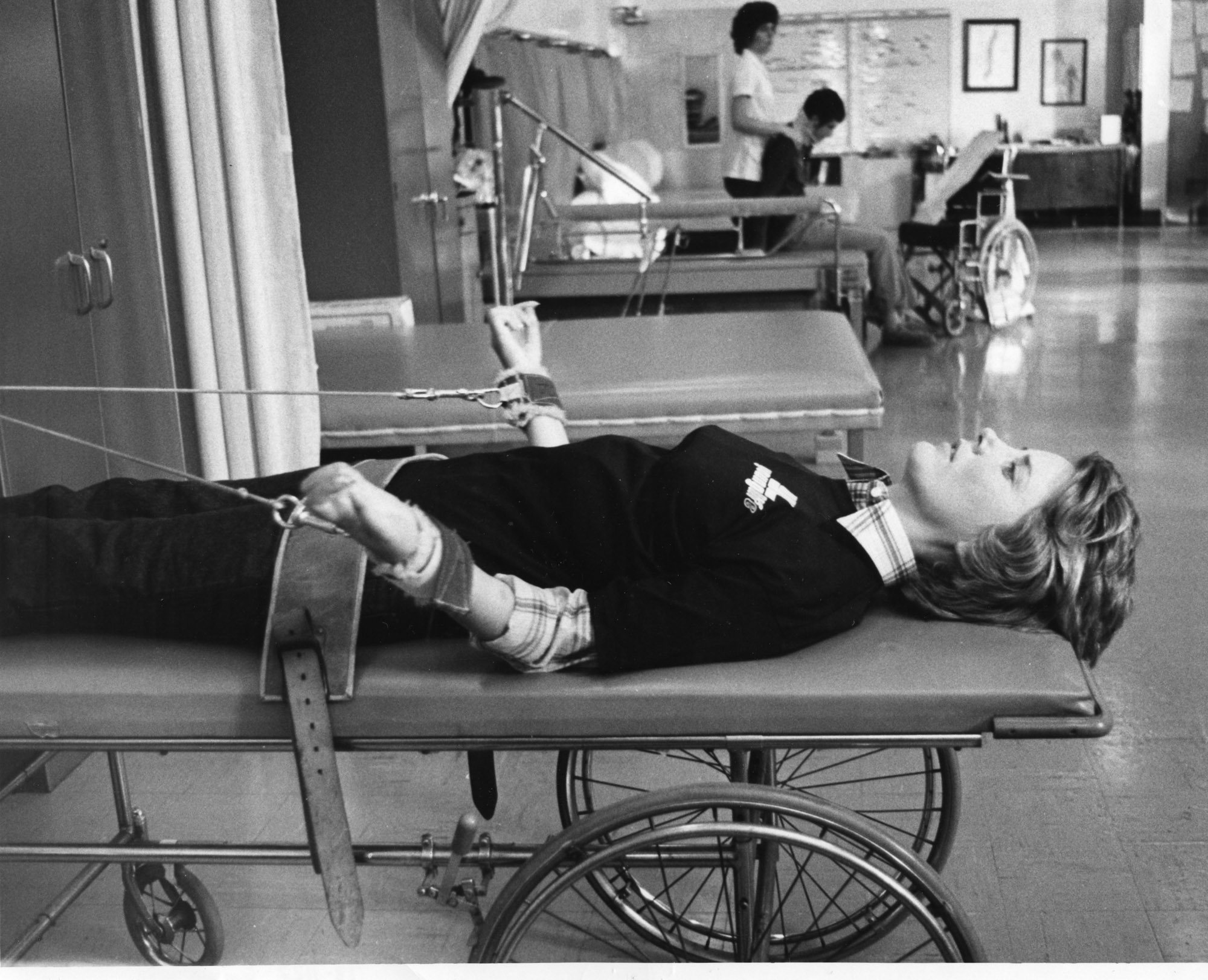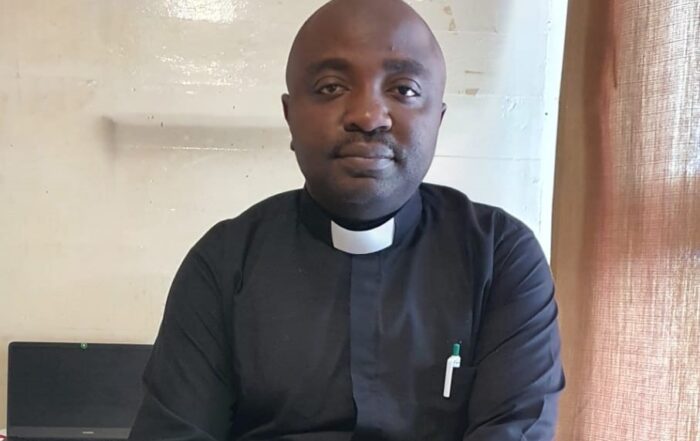Purposeful Ministry During Medical Crises
It’s the call no one wants to receive. “The tests came back positive.” “The car was T-boned… they don’t know if he’ll make it.” Or, as it happened 53 years ago for Joni Eareckson Tada,
“She severed her spinal column. She’ll never walk again.”
This kind of news can send any family into a tailspin. Yet with the support of a local church, a tailspin can be ridden out.

The church can be a visible manifestation of God’s hands of mercy… preventing the free fall of shock and grief from ending in a disastrous crash. As a church leader, you have the opportunity to initiate that response, to help your church be an answer to prayer before that prayer is even voiced.
First, understand that the success of your assistance is not dependent on your ability to correctly assess the situation at first encounter. It’s okay to feel unsure and out of your league. As with any life-changing event, each person will process and respond differently. The opportunities you have for making a difference are as unique as your congregation.
But the opportunities are great. And, as Galatians 6:9-10 (NIV) reminds us, “Let us not become weary in doing good, for at the proper time we will reap a harvest if we do not give up. Therefore, as we have opportunity, let us do good to all people, especially to those who belong to the family of believers.”
As we have opportunity, we are to do good. And because of the good we do, we will reap a harvest. So, don’t allow the opportunities for doing good to a family in crisis slip away.
Instead, be purposeful in the following ways:
1. Be present
Job’s three friends, Eliphaz, Bildad, and Zophar, get a bad rap. These three men were friends of Job—the most upright man living at the time—for a reason. Job 2:13 (ESV) says,
“And they sat with him on the ground seven days and seven nights, and no one spoke a word to him, for they saw that his suffering was very great.”
Job’s friends were keenly aware of his overwhelming grief and stayed by him 24/7. Understand that in the face of great suffering, presence is itself a gift. Even if you are unable to follow the example of 24/7 side-by-side companionship, make your presence a priority.
2. Listen
Pastors and ministry leaders are often known for what they say. Sitting in silence can seem awkward or a waste of time. Perhaps you feel the expectation to be a voice of theological insight. Yet here, too, we gain wisdom from the book of Job. Even though God declares in Job chapter 42 that Job has spoken of God rightly, Job confesses,
“I take back everything I said, and I sit in dust and ashes to show my repentance”
Job 42:6 (NLT)
Do not be quick to wax eloquent on what God is doing through this specific hardship or speculate on what he might do in the future. Be slow to offer advice or counsel. You can be perfectly, doctrinally sound and completely inappropriate with a hasty word.
3. Be doctrinally sound.
While the hospital bedside or waiting room is not the place for a three-point sermon on the sovereignty of God, there are appropriate places and times to address theological topics brought to the surface on account of the tragedy. Equip your congregation with specific teaching on the goodness and purposes of God in suffering. Provide a solid foundation so no one who is immature in the faith struggles with questions about whether the diagnosis is a sign of God’s disfavor or punishment. Explore, too, the subject of healing and how our confidence in heaven outweighs the sorrows of this world.
(Strengthen your theology of disability with Beyond Suffering coursework.)
4. Don’t lose the person in his or her diagnosis.
Just as you wouldn’t think of Joni as a broken neck or as someone summed up by the words “can’t use her arms or legs,” remember that a person is not his or her diagnosis. A person still wants to be seen as a person and not as a project. Favorites are likely to still be favorites, even if enjoying them looks a little different. The same applies to family members of the injured person. Do not see them merely as “the sister of the girl who broke her neck” or “the husband of the lady we’re all praying for.” Each individual person has both an identity and needs apart from the family member with the devastating diagnosis.
5. Be specific in your offer to help.
When a family is overwhelmed by medical details and new realities, no one will think to ask for help with mowing the lawn or taking a younger sibling to the park for an hour. You may not think to offer help in these areas, either. But if you recruit help from people in your congregation with a variety of spiritual gifts, they will think of specific acts that will help this family in need.
Arranging grocery delivery or car maintenance; making sure school-aged siblings have what they need for school; providing regular breaks for caregivers; advocating with medical providers and insurance carriers; coordinating donations to cover expenses: look for a variety of individuals who are eager to share their spiritual gifts in a specific way. “Let me know if you need anything” is a dead-end offer.
(Listen to Diane Dokko Kim share specific ways you can help a mom of a child with special needs on the Joni and Friends Podcast and download her “Help Wish List.”)
6. Pray.
Like the story of Job reminds us, there is a lot more going on with suffering and hardship than we can observe. This reality makes the promise in James 5:16 vitally important. Our “fervent prayer availeth much,” or, as a more modern translation states: “The prayer of a righteous person is powerful and effective” (NIV). Our righteous prayers on behalf of others have great power.
Remember, though, that your prayers over the devastating hardship should not start and end with the individual and family members directly affected. Pray for your own sake, too.
Earlier in James’ letter, he writes, “If any of you lacks wisdom, you should ask God, who gives generously to all without finding fault, and it will be given to you” (1:5, NIV).
Don’t be stingy in your own requests that God grant you wisdom. He promises to say “yes” to that prayer.
Fifty-three years ago this week, a Christian community just outside Baltimore, Maryland heard the devastating news that the recently graduated Joni Eareckson broke her neck. In many varied ways, and over several years, this community rallied in prayer and tangible help for Joni and the entire Eareckson family. And all these years later? Joni will tell you she still feels the effects of that ministry. The Church took advantage of the opportunity to do good, and we have only an inkling of the great harvest to be reaped as a result.
Find additional opportunities to do good. Volunteer with us!
Written By—Rebecca Olson
Rebecca Olson has served with Joni and Friends in various capacities since 2006, and during that time, she has contributed to several books, including The Beyond Suffering Bible, Life in the Balance Study Guide, and Real Families, Real Needs.

Do You Have Questions?
Contact us at [email protected] or call (818) 707-5664. We’re here for you. Your ministry’s success is our highest priority!





